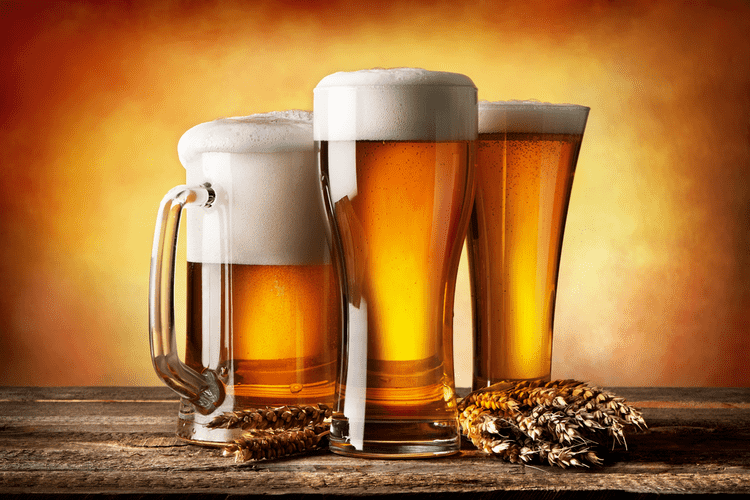Drinking alcohol while pregnant
Drinking alcohol during this time can cause damage to how body parts develop. And as the baby continues to develop in the womb, it’s damaging to drink at any time during pregnancy. The more you drink while pregnant, the greater the risk to your unborn baby. Your baby’s brain, heart and blood vessels begin to develop in the early weeks of pregnancy, before you may know you’re pregnant. Your practitioner’s goal should always be to ensure you have the healthiest pregnancy possible.
Partial FAS

More information may assist in understanding current documentation practices within EHRs and facilitate standardized and consistent documentation practices. Fetal alcohol spectrum disorders (FASDs) are a group of preventable conditions that can occur in a person who was exposed to alcohol before birth. At the same time as you ask your healthcare provider for a referral to a specialist, call your state or territory’s early intervention program. Request a free evaluation to find out if your child can get services to help. You do not need to wait for a alcohol during pregnancy healthcare provider’s referral or a medical diagnosis to make this call. Prenatal alcohol exposure is the leading cause of problems with brain development in the United States.
- Women frequently come to us worried because they had a few drinks before they noticed a missed period.
- We know of many harmful effects that drinking during pregnancy can have on a developing baby, and some of these may be caused by even a small amount of alcohol during pregnancy.
- In fact, their scores are higher on average (although these results are not statistically significant — they may just reflect random variation).
CDC activities to address marijuana use during pregnancy
It’s an incredibly difficult reality that miscarriages are as common as they are. And even if you do everything by the book, the highest risk of miscarriage is in the first trimester — and it often happens due to issues outside of your control (like chromosomal abnormalities). Or maybe you weren’t trying to get pregnant at all, and it came as a surprise when you realized that your period was over a week late. Now you’re looking at two pink lines on a home pregnancy test and freaking out about the night out with your girlfriends that you enjoyed a few days ago.
Alcohol passes directly from your body to your baby’s and can cause serious health problems for your baby.
While not drinking any alcohol during pregnancy is the safest choice, small amounts of alcohol early in pregnancy may be less risky to the mother’s health and the health of their babies than previously believed. Minimal alcohol use during the first trimester doesn’t appear to increase the risk for high blood pressure complications, or premature birth or low birth weights. That’s the findings of a study previously published in the journal Obstetrics and Gynecology. Women who are pregnant or who are trying to get pregnant should avoid drinking any amount of alcohol. The only way to prevent fetal alcohol syndrome is to not drink alcohol during pregnancy.
I drank wine during my last pregnancy and my baby turned out fine. Why shouldn’t I drink again during this pregnancy?
- “What do you gain? Guilt afterwards? I have 14-and-a-half weeks left, and I’m looking forward to a glass then.”
- The cause of problems that are found during the test may not be clear.
To prevent fetal alcohol syndrome, don’t drink alcohol during pregnancy. If you adopted a child or are providing foster care, you may not know if the biological mother drank alcohol while pregnant. International adoption from some countries may have a higher rate of alcohol use by pregnant mothers. If you have concerns about your child’s learning or behavior, talk with your child’s healthcare professional to find out what might be causing these problems. Symptoms of fetal alcohol syndrome may include any mix of issues with how the body develops; thinking, learning and behavior; and functioning and coping in daily life.
Neurobehavioral disorder associated with prenatal alcohol exposure
This sheet is about exposure to alcohol in pregnancy and while breastfeeding. It should not take the place of medical care and advice from your healthcare provider. Exposure to alcohol from all types of beverages–including beer wine, hard seltzer, hard cider, alcopops, distilled spirits (liquor), and mixed drinks–is unsafe for developing babies at every stage of pregnancy. A glass of wine, a can of beer, and a shot of liquor all have about the same amount of alcohol. Cocktails (mixed drinks) may have twice as much alcohol as these other beverages. It is not safe to drink any amount of alcohol at any time during pregnancy.

Most clinicians (87.7%) who reported screening their pregnant patients for alcohol use reported using 1 to 4 screening tools, with 44% using 1 or 2 tools and 43.7% using 3 or 4 tools. Another 3.9% reported screening their pregnant patients but did not use any screening tools. The 2 Sober living house most reported screening methods were a single question about the number of days per week at least 1 alcoholic drink was consumed (60.7%) and the CAGE tool (58.6%) (Table 3).